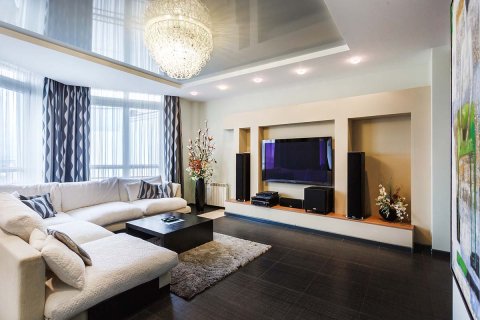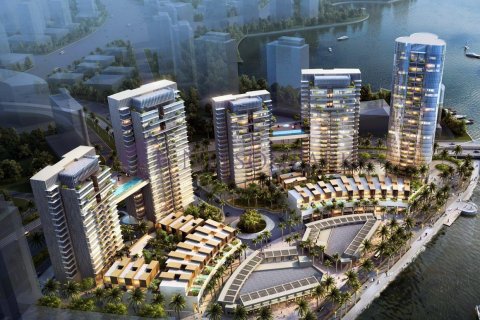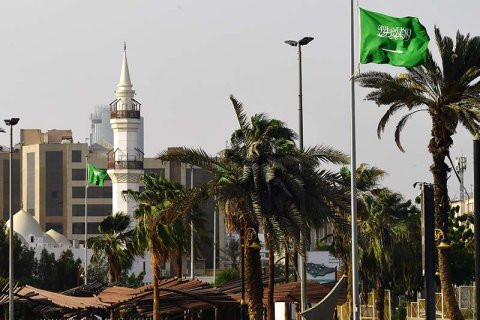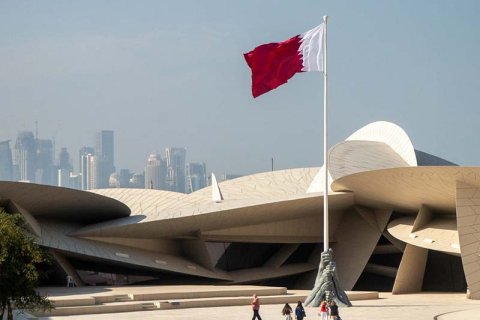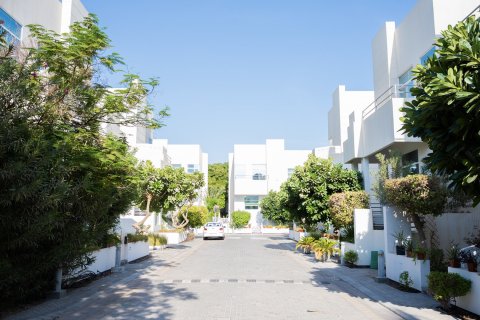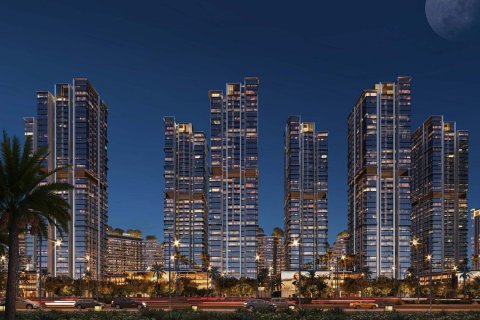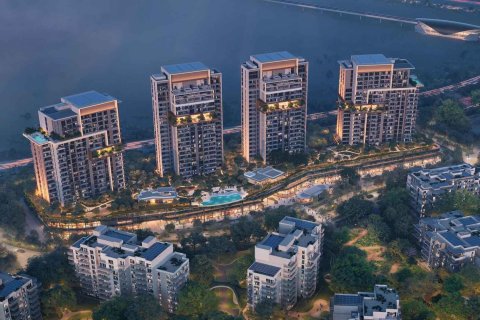
Immigration to Qatar offers the opportunity to live in one of the countries with the highest GDP per capita, exceeding USD 100,000. This small state in the Middle East is recognized for its good quality of life, rapidly developing economy and unique cultural environment.
Qatar offers numerous opportunities for career growth, thanks to its dynamically developing economy, which is based on rich oil and gas reserves. The country invests in infrastructure, education, and technological development, making it an attractive destination for specialists from various fields. Foreign nationals are required to obtain a visa to reside in the country legally.
In this article, we will examine the key aspects to consider when planning a move, including how to stay in Qatar legally, everyday expenses, and the required documents.
Content
What you need to know before moving to Qatar
First, foreign citizens need to familiarise themselves with the visa requirements and procedures for obtaining residence permits. The country offers various programmes for expats, including work visas and investment residency. Additionally, studying the market of property in Qatar is essential to choosing optimal housing.
Another important aspect is studying the healthcare system. The country offers high-quality medical services. However, medical insurance is required to access them. Many employers provide their employees with insurance policies; however, if this is not offered, purchasing personal insurance may be a good option.
How to get a residence permit in Qatar
Foreign nationals can live and work in Qatar, but they are required to obtain a residence permit. It can be obtained based on one of several special programmes, including:
- An investment residence permit can be obtained by purchasing an apartment or villa in Qatar worth over USD 200,000. It is usually issued for 1 year and can be extended. If you invest over USD 1 million in real estate, you can obtain permanent residency for 5 years immediately. The purchased property must be located in specially designated zones, such as The Pearl, West Bay Lagoon and Al Khor Resort.
- A work visa requires a job offer from a Qatari employer who will sponsor your stay there. It is suitable for those planning to work for an extended period of The employer is obliged to arrange a work permit and provide medical insurance.
- A family visa allows family members to reunite and live together. It can be issued to a spouse, children and even parents if the applicant can prove their financial solvency.
- A student visa is issued for enrolling in a higher education institution in the state.
A foreign national must continually reside in the country for over six months. Otherwise, the residence permit will be cancelled.
The process of applying for a residence permit includes several stages:
- Preparation of documents that meet the requirements of a specific programme;
- Applying to the Ministry of Justice. You can register on the Hukoomi portal, which provides online access to electronic services;
- After applying, you need to wait for its approval. This process may take some time, depending on the type of visa and the workload of immigration services. It's essential to monitor the application status on the online portal and provide any additional documents promptly if required.
How to obtain permanent residency
Law No. 10 of 2018 on Permanent Residence regulates the process for obtaining permanent residence in the country. According to this law, foreign citizens may apply for permanent residency, provided they have been legally residing in the country for a substantial period.
The timeframes for obtaining the status are as follows: 20 years for individuals born outside Qatar and 10 years for those born within the country. During this period, foreigners must not leave the kingdom for more than 60 days per year. Days of absence will be subtracted from the total residency period.
Additional requirements for foreign nationals wishing to obtain permanent residency:
- The applicant must have an income to support themselves and their family. This is typically around QAR 20,000 per month (approximately USD 5,500) for civil servants and QAR 30,000 (approximately USD 8,250) for workers in the commercial sector;
- Potential applicants must not have criminal records or other offences;
- They need to demonstrate a sufficient level of the Arabic language.
Currently, the authorities set a quota of only 100 permanent residency permits per year. However, the state's Emir has the right to exceed this number.
There are no residence period requirements for the following categories:
- children of a Qatari woman married to a foreigner;
- spouses of Qatari citizens;
- children of naturalised Qataris;
- foreign nationals with special merits to the state.
Foreign nationals whose activities are of significant interest to the country or those who have made substantial contributions to its development, for example, by investing at least USD 1 million in real estate, can also qualify for permanent residency, regardless of their period of residence.
What documents are required for moving to Qatar
Immigration involves the collection of several documents necessary for obtaining a residence permit or work visa. The standard documents for moving to Qatar include:
- A passport with a minimum validity period of 6 months;
- Several passport-sized photographs;
- Confirmation of absence of infectious diseases, such as HIV and tuberculosis. These documents must be certified by accredited medical institutions;
- If the move is related to work, a contract from a Qatari employer will be required, which must be registered with the Ministry of Labour;
- Confirmation of financial solvency, for example, a bank statement or bank loan approval;
- Property documents. To obtain a residence permit for investment purposes, foreign nationals must provide proof of the purchase of a villa or apartment in Qatar.
Additionally, for family relocations, requirements for migration to Qatar may concern marriage certificates and birth certificates of children. A notarised translation of documents into Arabic, along with a criminal record certificate from the country of residence that has been translated and certified by the relevant authorities, is also required.
What is the cost of living in Qatar
If you ask, «Is it expensive to live in Qatar?», the answer will depend on the income level. According to the Numbeo index for 2025, the following expenses can be highlighted by main categories:
- Household needs for a family of 4 – USD 3,099 (The average monthly salary is USD 3,690);
- Renting a 1-bedroom apartment in Doha is approximately USD 1,550 per month;
- Utility payments for an 85 m² apartment cost approximately USD 100 monthly, excluding mobile communications and internet expenses;
- Mobile communications are from USD 42 per month;
- A monthly subscription for public transport costs USD 33;
- The price of a litre of petrol is USD 55;
- Tuition fees for a child in school start on average from USD 11,000;
- Kindergarten costs from USD 750 per month;
- Dinner for two in a restaurant costs approximately USD 48;
- A grocery basket of essential products, such as bread and milk, costs about USD 65. For comparison, a bottle of non-alcoholic beer costs between USD 4 and USD 11 in a restaurant.
Pros and cons of moving to Qatar
At least six pros of moving to Qatar can be highlighted:
- The country is experiencing an economic boom thanks to substantial natural gas and oil reserves. It offers numerous opportunities for career growth in various fields, including energy, finance, technology and education. Additionally, workers are exempt from taxes and companies are required to pay only 10% of their profits to the state;
- The country's crime rate is very low. In 2022, Qatar was recognised as the safest state in the world, creating a comfortable and peaceful environment for immigration. This is due to strict laws and the practical work of law enforcement agencies;
- The emirate impresses with its modern skyscrapers, a well-developed transport network, and advanced technologies. At the same time, the architecture harmoniously combines traditional Arabic motifs and futuristic design;
- The region is a convenient hub for tourists and businesspeople travelling to the Middle East, Asia, and Africa. Hamad International Airport in Doha is recognised as one of the best in the world, making it easy to reach key cities in many countries;
- The state invests significant funds in developing the educational sector, attracting leading world universities and creating innovative programmes. Healthcare in the country is also at a high level, providing quality medical services;
- Tax benefits. No tax on property ownership; its sale and inheritance allow for significant savings and increase the return on investment. There is also no personal income tax.
There are also cons. The climate in Qatar is mostly desert, characterised by hot summers and mild winters. This influences the lifestyle, as most events and activities occur indoors with air conditioning.
The cost of living in Qatar is relatively high; however, the salary level for qualified specialists helps to offset this. When relocating, keep in mind that this is a Muslim country with unique laws and traditions.
The lifestyle in Qatar may seem unusual to many foreign nationals. For instance, clothing should be modest and covered, especially for women. The country holds semi-conservative views on appearance and behaviour in society. Qatari women traditionally cover their heads and wear black abayas, which are essential to their cultural identity. Meanwhile, the rules for expatriates and local men are less strict but still require adherence to specific norms. For instance, shoulders should be covered, and clothing should be loose and reach the knees.
There are strict rules regarding swimwear on public beaches in the country. Wearing bikinis or swimming trunks is not allowed here. Only fully covered Muslim swimwear is permitted. However, those seeking a more relaxed atmosphere can visit private hotel beaches, where these restrictions do not apply, and swim in beach attire more typical of Western tourists.
Alcohol consumption is strictly controlled. It is simply impossible to buy it in shops; it is only available in hotel bars at corresponding prices.
Foreign nationals are expected to respect local religious customs and observe local holidays. For example, during Ramadan, it is forbidden to eat, drink, or smoke in public places during the daylight hours. Public displays of romantic relationships are not welcomed, even between spouses, and an increased interest in an unfamiliar Qatari woman may be perceived as a sign of disrespect.
Gender segregation is vivid in public places. Some establishments and events may be intended only for men or women. The latter also face employment difficulties, as established traditions restrict the possibility of working in any field.
Read more
Which city to choose for moving to Qatar
The main cities attracting migrants include Doha, Al Khor, and Umm Salal Muhammad.
- Doha is the heart of the emirate and its largest metropolis. Doha houses the country's leading business and administrative centres. There is a vast selection of vacancies, particularly in the oil, gas, finance and IT sectors. International companies establish offices in Doha, making the city an ideal destination for professionals seeking career opportunities. The city has a well-developed infrastructure, including modern schools, prestigious hospitals, and shopping centres. There are also options for leisure, including museums, theatres and numerous restaurants catering to every
- Al Khor is a cosy and peaceful city located northeast of Doha. It is renowned for its stunning beaches and nature reserves, making it an ideal destination for families and those who enjoy active outdoor recreation. The infrastructure is less developed than in Doha. Still, there are also all the necessary services and institutions, including schools and medical clinics.
- Umm Salal Mohammed is a rapidly developing city near Doha. In recent years, new residential complexes, schools, and shopping centres have been actively built here. It is suitable for those who want to live in a quieter and more peaceful environment while still having access to all the amenities of a big city.
When choosing a place to live, consider factors such as job availability in your field, infrastructure quality, and access to educational and medical institutions. Each city presents its unique advantages, helping you find the ideal option that matches your lifestyle and needs.
Popular types of real estate in Qatar for relocation
Qatar offers various real estate options for relocation:
- Apartments in modern residential complexes, especially in Doha, are in demand due to additional amenities such as swimming pools and fitness centres;
- Villas provide more space and privacy. They are often located in prestigious areas with private gardens and swimming pools;
- Townhouses provide more space than apartments and access to shared amenities in gated communities;
- Commercial real estate is also in demand due to the region's business growth. Office spaces and retail areas offer opportunities for entrepreneurs.
Middle East is a licensed agency with many years of experience specialising in obtaining investment residency in the Middle East and the Caribbean. Schedule a consultation with our experts today to learn more about relocation opportunities.








